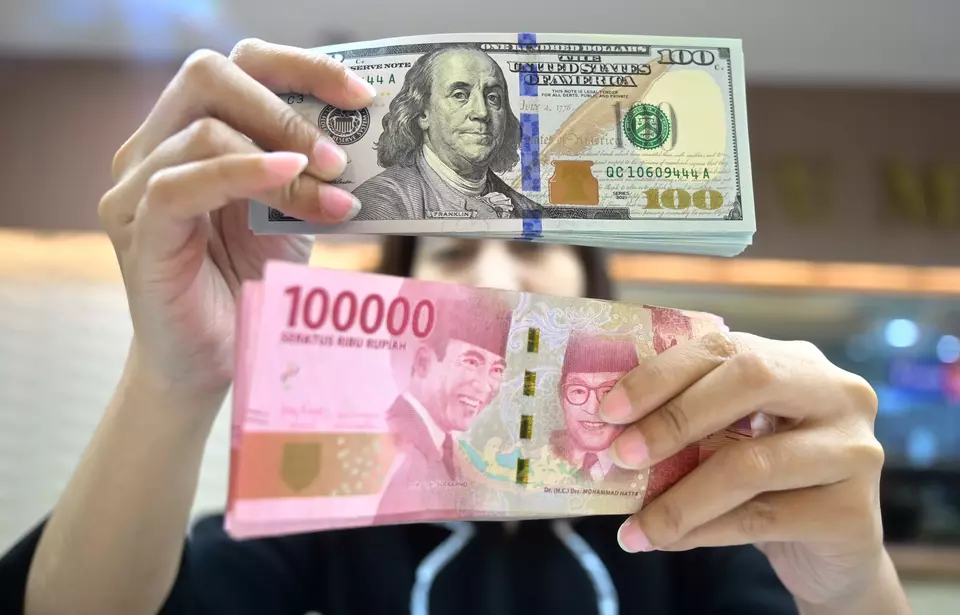December 23, 2024 | 9:39 pm
 A Staff shows American dollar and Indonesian rupiah banknotes at a money changer in Jakarta on Nov. 6, 2024. (Antara Photo/Rivan Awal Lingga)
A Staff shows American dollar and Indonesian rupiah banknotes at a money changer in Jakarta on Nov. 6, 2024. (Antara Photo/Rivan Awal Lingga)
Jakarta. Indonesia's rupiah is expected to face continued depreciation into early 2025, according to Dian Ayu Yustina, Head of Macroeconomic and Financial Market Research at Bank Mandiri. According to Dian, ongoing uncertainty in the global economy, particularly due to the upcoming US presidential inauguration in January 2025, could further pressure currency markets."On Jan. 20, Donald Trump will be inaugurated as president. This will provide more clarity on the policies he will implement once in control of the US. government," she told IDTV on Monday, adding that the market is waiting to see what economic policies Trump will prioritize.
The outlook for Trump’s economic agenda is crucial for several key US macroeconomic indicators, such as inflation and unemployment. Dian said if these indicators align with the US Federal Reserve's policies, the market may breathe a sigh of relief. However, a divergence between Trump's outlook and the Fed's policies could create significant market volatility.
"Until early next year, we must remain cautious, as the potential for volatility in the rupiah exchange rate still exists," Yustina added.
In recent weeks, the rupiah has faced significant depreciation, with the spot rate dropping by 1.31 percent to Rp 16,222 per US dollar. The Jakarta Interbank Spot Dollar Rate from Bank Indonesia showed a 1.77 percent decline, reaching Rp 16,270 per US dollar. At one point, the rupiah even hit the level of Rp 16,300 per US dollar.
The depreciation of the rupiah has been driven by global market sentiment, primarily due to the U.S. Federal Reserve's interest rate policies and the strengthening of the US dollar. This trend was further exacerbated by a statement from Federal Reserve Chairman Jerome Powell, who announced that interest rate cuts in the U.S. would be limited to just two 50-basis-point reductions in 2025.
Responding to the rupiah's depreciation, Yustina advised the Indonesian government and Bank Indonesia (BI) to remain vigilant and closely monitor the US economic policies and market developments. "It is crucial to be alert, particularly in terms of financial market volatility and foreign exchange liquidity in the domestic market," she said.
Yustina also stressed the importance of continued stabilization measures in Indonesia's financial markets. "The government and BI need to take measured and cautious steps to ensure adequate foreign exchange liquidity in the market, preventing further pressure on the rupiah," she explained.
Despite concerns over the rupiah's performance, Yustina noted that the currency had reached similar levels in the past, including during the COVID-19 pandemic and last year, when it hit Rp 16,500 per dollar. She remains optimistic that with coordinated monetary policies from the central bank, the government, and the Financial Services Authority (OJK), the rupiah's stability can be maintained moving forward.

No comments:
Post a Comment